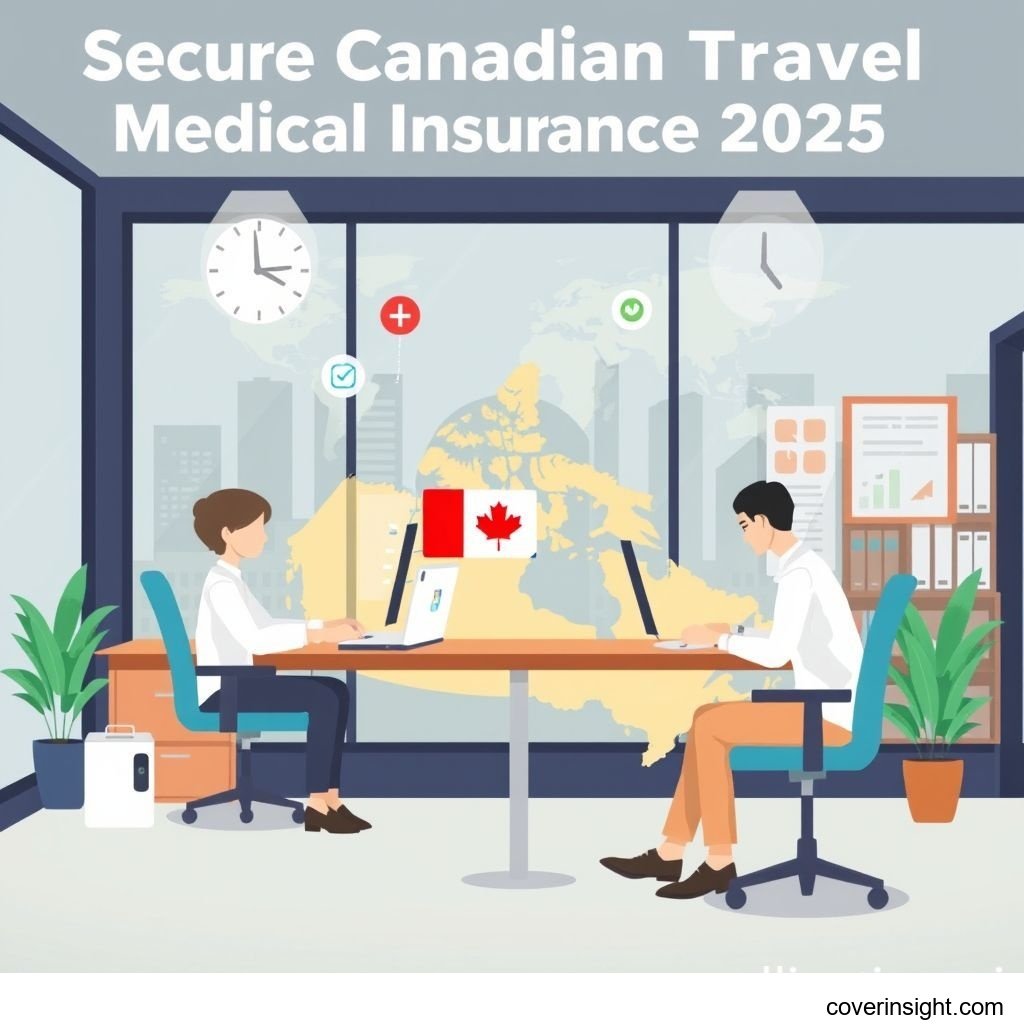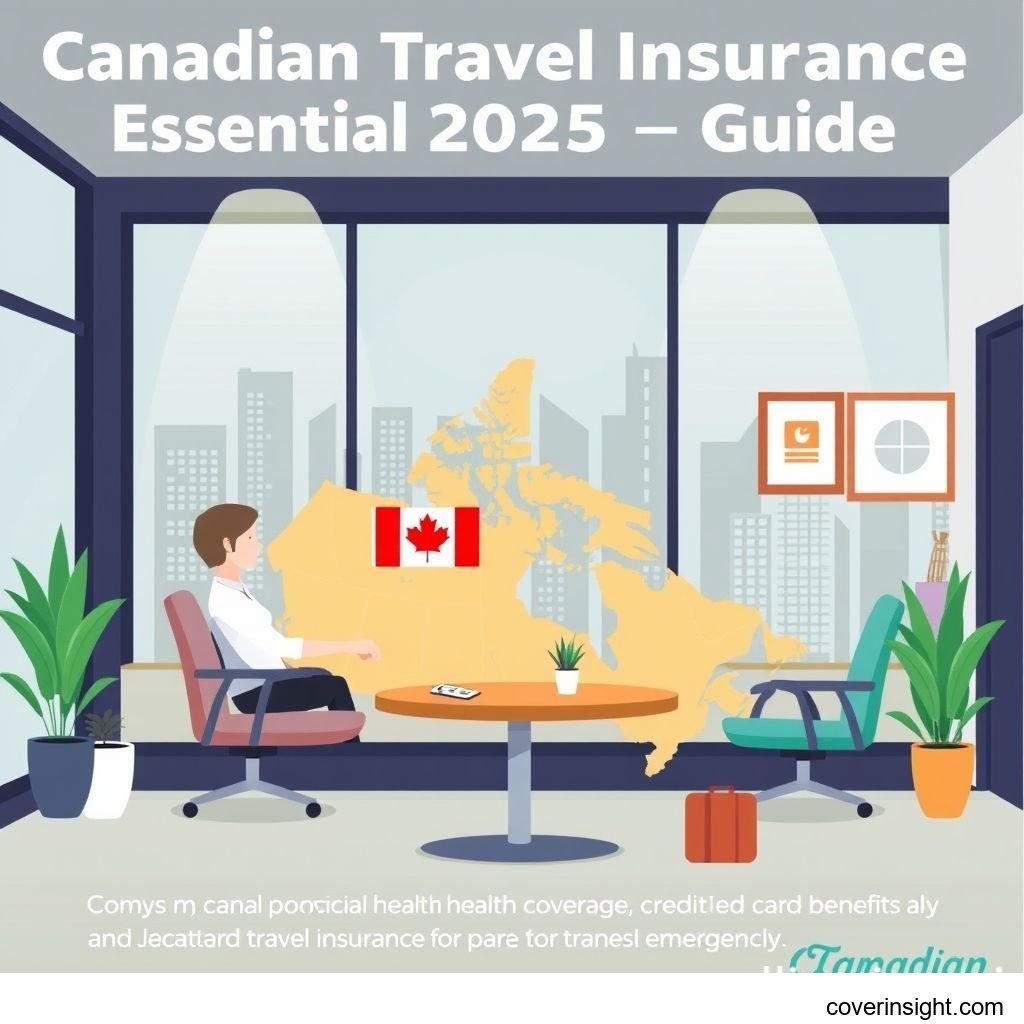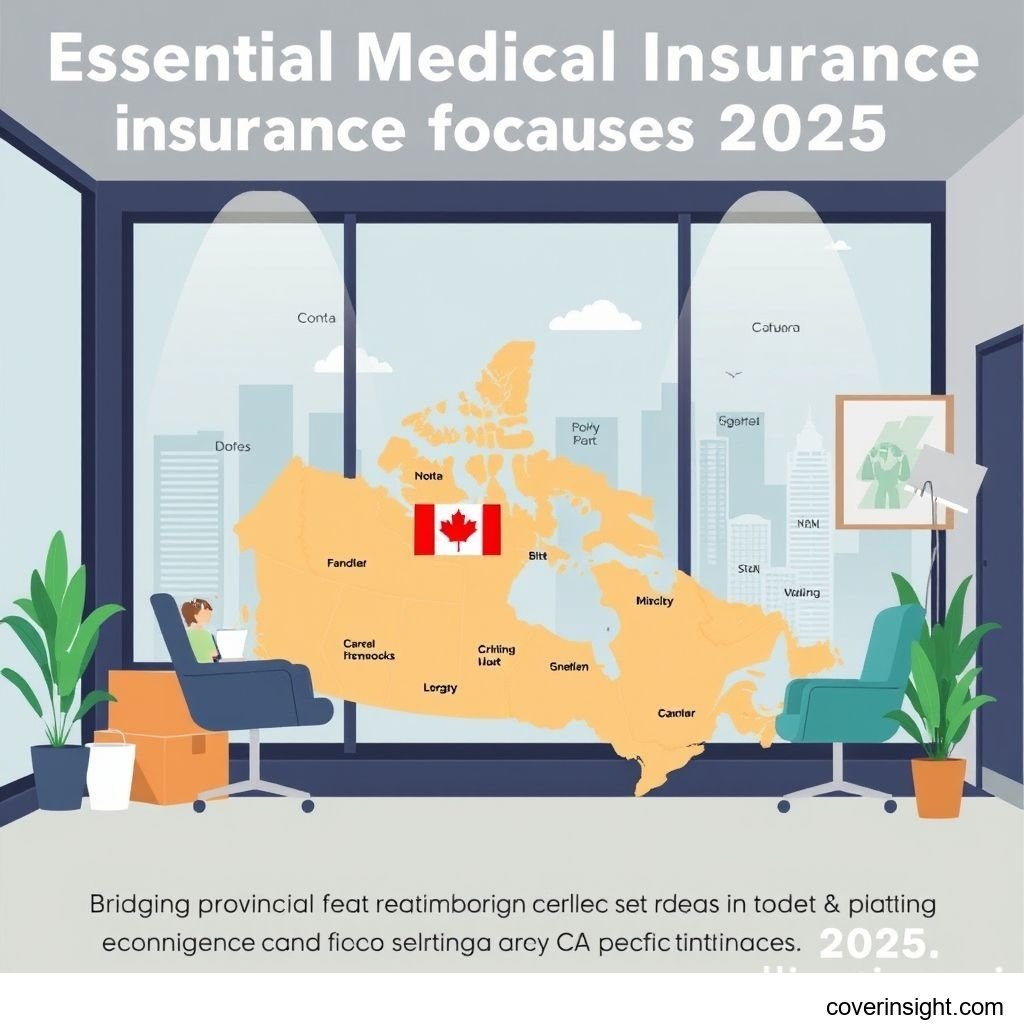Secure Canadian Travel Medical Insurance 2025
Introduction
For Canadians planning international travel in 2025, securing adequate medical insurance for international travel is not merely a recommendation; it's an essential safeguard. While the excitement of exploring new cultures and landscapes is undeniable, the potential for unexpected medical emergencies abroad can quickly turn a dream vacation into a financial nightmare. Canadian provincial health plans offer little to no coverage outside of Canada, making a robust travel medical policy indispensable. This guide will walk you through the nuances of selecting the best protection for your journeys, ensuring peace of mind throughout your adventures.
Understanding Medical Insurance for International Travel
Navigating the complexities of healthcare abroad can be challenging, especially during an emergency. Medical insurance for international travel is designed to cover unforeseen medical expenses you might incur while outside your home province or country. Understanding what’s included and what’s not is crucial for making an informed decision.
What’s Included
A comprehensive medical insurance for international travel policy typically covers a wide range of emergency situations. These are designed to address acute, unexpected health issues that arise during your trip.
-
Emergency Medical Treatment: This is the core of the policy, covering costs for hospital stays, doctor visits, diagnostic tests (X-rays, lab work), and prescription medications for sudden illnesses or injuries.
-
Emergency Medical Evacuation: If your condition requires transport to a more suitable medical facility, or even back to Canada, this coverage handles the significant costs involved.
-
Repatriation of Remains: In the unfortunate event of death, the policy often covers the expenses for returning the deceased's remains to Canada.
-
Accidental Dental Emergency: Coverage for sudden dental pain or injury, usually limited to a specific amount.
-
Ambulance Services: Costs associated with emergency ground or air ambulance transport to a medical facility.
-
Travel Companion Return: If you are hospitalized, some policies cover the cost for a travel companion to return home.
Common Exclusions
While robust, medical insurance for international travel policies do have limitations and exclusions. Being aware of these can prevent unwelcome surprises if you need to file a claim.
-
Pre-existing Conditions: Often, policies exclude coverage for conditions that were unstable or treated within a certain period prior to your trip. Some specialized policies may offer limited coverage for stable pre-existing conditions.
-
Elective Procedures: Cosmetic surgery or non-urgent medical procedures are not covered.
-
High-Risk Activities: Injuries sustained during adventure sports like bungee jumping, skydiving, or heli-skiing may be excluded unless an additional rider is purchased.
-
Alcohol or Drug-Related Incidents: Injuries or illnesses resulting from intoxication or drug abuse are typically not covered.
-
War or Civil Unrest: Medical expenses incurred in areas declared as war zones or regions experiencing civil unrest are usually excluded.
-
Illegal Acts: Any medical costs arising from your participation in illegal activities will not be covered.
Cost Analysis for Medical Insurance for International Travel
The price of medical insurance for international travel can vary significantly, reflecting a personalized assessment of risk. Understanding the factors that influence premiums helps you anticipate costs and budget effectively for your trip.
Price Factors
Several key elements determine the premium you'll pay for your travel medical coverage. Each contributes to the overall risk profile evaluated by insurers.
-
Age of Traveler: This is often the most significant factor. Older travelers typically face higher premiums due to an increased likelihood of medical issues.
-
Trip Duration: The longer you plan to be away, the higher the cost, as extended trips present more opportunities for incidents.
-
Destination: Travel to countries with higher healthcare costs, such as the United States, usually results in higher premiums compared to other destinations.
-
Coverage Amount: Policies with higher maximum payout limits will naturally cost more.
-
Deductible Amount: Choosing a higher deductible can lower your premium, but you'll pay more out-of-pocket if a claim arises.
-
Pre-existing Medical Conditions: If you require coverage for stable pre-existing conditions, this will typically increase the policy cost.
Saving Tips
While you shouldn't compromise on essential coverage, there are smart ways to potentially reduce the cost of your medical insurance for international travel.
-
Shop Around: Obtain quotes from multiple insurance providers. Prices can vary significantly for the same level of coverage.
-
Annual Multi-Trip Policies: If you travel frequently, an annual policy can be more cost-effective than purchasing single-trip policies for each journey.
-
Group Plans: If you're traveling with family or a group, inquire about group rates, which might offer discounts.
-
Review Existing Coverage: Check if your credit card or employer benefits already offer some form of travel insurance. Ensure you understand any limitations.
-
Adjust Deductible: If you have an emergency fund, consider a higher deductible to lower your upfront premium.
-
Bundle Policies: Some insurers offer discounts if you purchase multiple types of insurance (e.g., medical and cancellation) from them.
Choosing the Right Medical Insurance for International Travel
Selecting the appropriate medical insurance for international travel requires careful consideration of your personal circumstances and travel plans. It's not a one-size-fits-all product, and a tailored approach ensures optimal protection.
Assessing Your Needs
Before comparing policies, take stock of your unique travel requirements and health status. This self-assessment forms the foundation of your insurance decision.
-
Health Status: Are there any pre-existing conditions? How stable are they? Be honest and thorough about your medical history.
-
Travel Style: Are you planning a relaxing beach vacation or an adventurous trekking trip? High-risk activities may require specific riders.
-
Frequency of Travel: Do you travel once a year or multiple times? This influences whether a single-trip or multi-trip policy is best.
-
Travelers in Your Group: Are you traveling solo, with family, or with a group? Family or group plans can be more economical.
-
Budget: While cost is a factor, prioritize adequate coverage over the cheapest option.
Key Policy Features to Look For
Beyond the basic emergency medical coverage, certain features enhance the value and utility of your policy. Look for these to ensure comprehensive protection.
-
High Coverage Limits: Aim for at least $1 million in emergency medical coverage. Healthcare costs abroad, particularly in the U.S., can be astronomical.
-
Direct Billing: Policies that offer direct billing to hospitals can save you from upfront out-of-pocket expenses.
-
24/7 Emergency Assistance: Access to a multilingual helpline for medical emergencies is invaluable when you're in a foreign country.
-
Emergency Evacuation & Repatriation: Confirm the limits and conditions for these critical coverages.
-
Follow-up Care: Check if the policy covers medical follow-up once you return to Canada, especially for conditions that started abroad.
-
Clear Wording on Exclusions: Ensure you fully understand what the policy does not cover, especially regarding pre-existing conditions.
Comparing Providers
Once you know what you need, compare offerings from reputable insurance providers. Websites like Insurance Resources Global, can be a good starting point for exploring options. Look beyond just the price.
-
Reputation and Reviews: Check independent reviews and ratings for customer service and claims handling.
-
Policy Wording: Read the fine print carefully. Don't hesitate to ask questions if anything is unclear.
-
Claims Process: Understand how to file a claim, what documentation is required, and the expected processing time.
-
Flexibility: Can you extend your policy if your trip is unexpectedly prolonged? Are there options to upgrade coverage?
Special Considerations for Travelers
Certain groups of travelers or specific scenarios require particular attention when purchasing travel medical insurance. Tailored solutions ensure adequate protection.
Senior Travel Insurance
For older Canadians, finding comprehensive and affordable senior travel insurance is a significant concern. Age and pre-existing medical conditions often lead to higher premiums or more stringent eligibility requirements.
-
Medical Questionnaire: Expect detailed questions about your health history. Be completely honest to avoid claim denials.
-
Stability Period: Many policies require pre-existing conditions to be "stable" for a defined period (e.g., 90 to 180 days) before your departure.
-
Specialized Providers: Some insurers specialize in senior travel insurance, offering policies designed to meet the unique needs of older travelers.
-
Higher Deductibles: To manage costs, some seniors opt for higher deductibles if they have the financial means to cover initial expenses.
-
Annual vs. Single Trip: For frequent travelers, an annual multi-trip policy can sometimes be more cost-effective, but confirm age limits and trip duration restrictions.
Credit Card Travel Insurance
Many Canadians rely on credit card travel insurance benefits, often included with premium travel cards. While convenient, this coverage often has significant limitations compared to standalone policies.
-
Coverage Limits: Credit card policies usually have lower maximum coverage amounts for medical emergencies, which might be insufficient for serious incidents.
-
Trip Duration Limits: Most credit card benefits have strict trip length restrictions (e.g., 15 or 30 days), beyond which coverage may cease.
-
Age Restrictions: Many credit card policies impose age cut-offs (e.g., age 65 or 75), after which benefits are reduced or eliminated.
-
Pre-existing Condition Exclusions: These policies often have very strict clauses regarding pre-existing conditions, making them unsuitable for those with health concerns.
-
Automatic Enrollment: Ensure you meet all eligibility criteria, such as booking the entire trip with that specific card, for the coverage to be active. Always review your card's benefits guide or contact the issuer directly to understand the specifics of your credit card travel insurance.
Making a Claim
Despite careful planning, medical emergencies can happen. Knowing the claims process for your medical insurance for international travel is crucial. Timely and accurate action can significantly ease the burden.
Steps to Take
If you experience a medical emergency while abroad, follow these steps to ensure a smooth claim process.
-
Contact Your Insurer Immediately: Call the emergency assistance number provided by your insurance company as soon as possible. They can guide you to approved medical facilities and manage direct billing.
-
Keep Records: Document everything. This includes dates of service, names of doctors and hospitals, treatment received, and any related communication with the insurer.
-
Obtain Medical Reports: Request detailed medical reports, diagnosis, and itemized bills from all healthcare providers.
-
Pay Deductibles: Be prepared to pay any applicable deductibles or co-payments upfront.
-
Retain Receipts: Keep all original receipts for medical expenses, transportation, and medications.
-
Submit Claim Form: Complete the insurer's claim form accurately and submit it with all required documentation within the specified timeframe.
Required Documentation
To successfully process a claim, you'll need to provide specific paperwork to your insurer. A thorough collection of these documents will expedite your claim.
-
Completed claim form.
-
Copy of your insurance policy and certificate.
-
Original itemized medical bills and receipts.
-
Medical reports from treating physicians/hospitals, including diagnosis and treatment.
-
Proof of travel dates (flight tickets, boarding passes, passport stamps).
-
Police reports (if applicable, for accidents or theft).
-
Any other documents requested by the insurer.
For more detailed information on consumer rights and insurance, consult reputable sources like the Insurance Bureau of Canada or the Financial Consumer Agency of Canada. Additionally, explore general resources on Canadian insurance via CA Insurance Home.
FAQs
Securing medical insurance for international travel often raises common questions. Here are answers to some of the most frequently asked queries.
How much does medical insurance for international travel cost?
The cost of medical insurance for international travel varies widely based on factors such as your age, trip duration, destination, health status, and the amount of coverage you choose. For a healthy younger traveler on a short trip to a less expensive region, it could be under $50. For an older traveler with pre-existing conditions on a long trip to the U.S., it could be hundreds or even thousands of dollars. It's always best to get personalized quotes.
What affects premiums?
Premiums are primarily affected by the traveler's age, the length of the trip, the destination (healthcare costs vary globally), the maximum coverage amount selected, and any pre-existing medical conditions that require coverage. Higher risk factors generally lead to higher premiums.
Is it mandatory?
While not legally mandatory to enter most countries, medical insurance for international travel is highly recommended for all Canadian travelers. Provincial health insurance provides minimal to no coverage outside Canada, leaving you fully exposed to potentially crippling medical bills if you don't have private coverage.
How to choose?
To choose the right policy, assess your personal health needs, especially concerning pre-existing conditions. Consider your travel destination and planned activities. Compare quotes from several reputable providers, paying close attention to coverage limits, exclusions, deductibles, and emergency assistance services. Read the policy wording thoroughly.
Consequences of no coverage?
Traveling without adequate medical insurance for international travel can lead to severe financial consequences. You would be personally responsible for all medical bills, which could range from thousands to hundreds of thousands of dollars for emergencies, evacuations, or extended hospital stays. This financial burden can result in significant debt and long-term financial hardship.








Comments